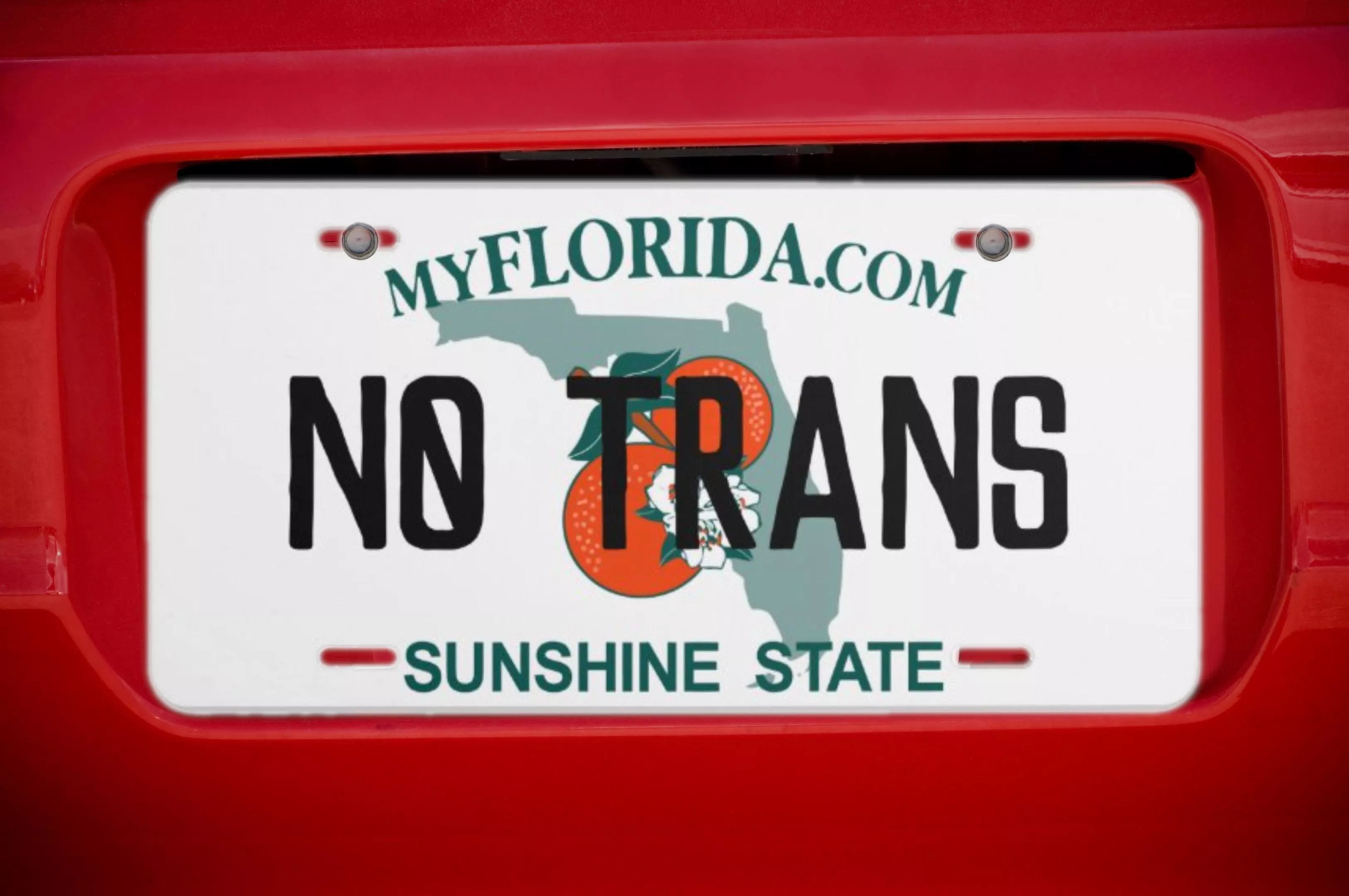
New Times photo-illustration (license plate via Zazzle/car photo by WendellandCarolyn via iStock Getty Images

Audio By Carbonatix
The State of Florida will no longer allow transgender people to change their listed gender on their driver’s licenses, opening up the possibility of criminal prosecution should they do so, according to a new memo.
On January 26, the Florida Department of Highway Safety and Motor Vehicles (FLHSMV) informed counties statewide in a new directive that the department is rescinding an existing policy that allowed people to obtain a new license if they wished to change their listed gender.
Issued by the department’s Deputy Executive Director Robert Kynoch, the memo says a driver’s marked gender must be based on supporting documents provided with a license application and “must be sufficient to establish the identity of the applicant.”
“Permitting an individual to alter his or her license to reflect an internal sense of gender role or identity, which is neither immutable nor objectively verifiable, undermines the purpose of an identification record and can frustrate the state’s ability to enforce its laws,” the memo states.
Kynoch claims a Florida statute allows the department to issue replacement licenses only when drivers change their name, address, or driving restrictions.
BREAKING: Florida has taken unilateral administrative action and banned gender marker changes on drivers licenses. Any trans person who has had theirs changed is potentially subject to suspension. Anyone attempting to change it after could be criminally prosecuted for "fraud." pic.twitter.com/wZAzYefSIL
— Alejandra Caraballo (@Esqueer_) January 30, 2024
Kynoch warned that if a person lists a gender that does not correspond to “innate and immutable biological” sex, they can be charged with fraud and suffer civil penalties including the suspension, cancellation, or revocation of their license.
Alejandra Caraballo, a civil rights attorney and clinical instructor at Harvard Law School’s Cyberlaw Clinic who shared the memo on social media, warned that the directive’s language opens up the possibility that the state could bring fraud charges against any transgender person, tourists included, who have changed their driver’s license to reflect their gender identity.
“Any out trans person could have their license revoked or suspended at any time under this policy and unlikely to be able to be renewed with the current gender marker,” Caraballo wrote on X, the platform formerly known as Twitter. “This is a massive and intrusive change erasing legal recognition and criminalizing trans people in the state.”
Meanwhile, legislation is pending in the statehouse with restrictions that mirror the memo and require those applying for identification cards in Florida to list their sex assigned at birth. Under consideration in the Florida House’s Insurance and Banking Subcommittee, the bill would also require private insurers that cover gender-transition procedures and medication to cover gender “detransition” measures.
Caraballo pointed out that the memo could be an attempt to block transgender from renewing their licenses prior to the bill’s passage.
The administrative action and bill are in line with the Republican-dominated state legislature’s and Gov. Ron DeSantis’ regulatory crusade targeting transgender people in Florida. DeSantis has signed bills that restrict discussion of gender identity in school, prohibit trans people from using public bathrooms of their choice, and bar Medicaid coverage of gender reassignment procedures.